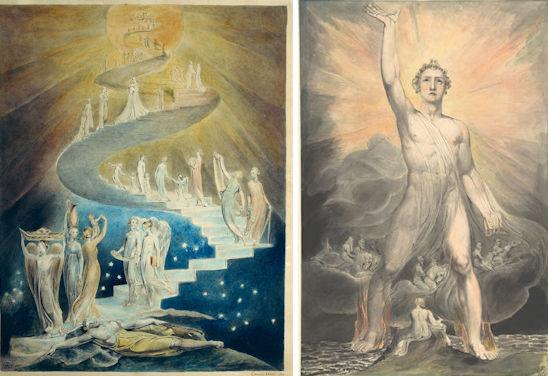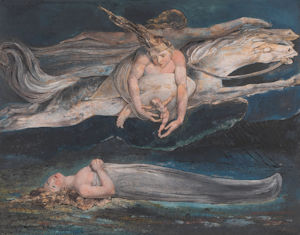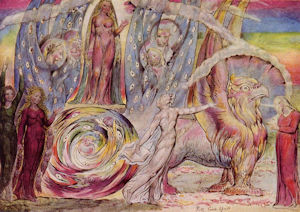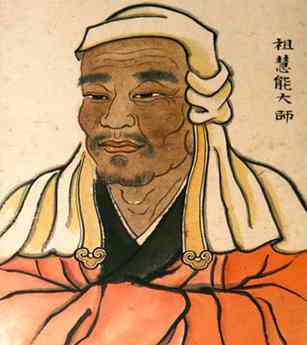
 Born in England in November 1757, William Blake was never financially successful but always, barely, kept a roof over his head and that of his beloved wife Catherine. He had apprenticed for seven years in engraving and was self-taught in poetry.
Born in England in November 1757, William Blake was never financially successful but always, barely, kept a roof over his head and that of his beloved wife Catherine. He had apprenticed for seven years in engraving and was self-taught in poetry.
Blake used his engraving, painting, and illustration skills to earn a bare-bones living, primarily through commissions for work from close friends and followers who believed in his genius. He never reached a larger-scale popularity or recognition during his life.
 In his work, Blake portrayed the human being as ultimately what he called Albion, which is an ancient name for the island Britain. For Blake, "Albion" was the original human before the mythological, timeless fall from a healthy and integrated state of being.
In his work, Blake portrayed the human being as ultimately what he called Albion, which is an ancient name for the island Britain. For Blake, "Albion" was the original human before the mythological, timeless fall from a healthy and integrated state of being.
The four capacities that have become fragmented from each other are sensation, intellect, desire / love, and imagination. Due to the fragmentation, the capacities are conflicted and are imbalanced in expression, resulting in a lack of fulfillment of the individual's potential.
 Carl Jung spoke similarly of mental capacities of sensation, thinking, feeling, and intuition. Psychoanalyst Donald Winnicott pointed out that real progress in psychotherapy occurs when the client grasps a new insight in a manner that unites intellect and emotion.
Carl Jung spoke similarly of mental capacities of sensation, thinking, feeling, and intuition. Psychoanalyst Donald Winnicott pointed out that real progress in psychotherapy occurs when the client grasps a new insight in a manner that unites intellect and emotion.
Blake himself emphasized uniting and freeing the four capacities to act as one in an integrated, liberated human being and society. The result is experience and expression of the individual's and humankind's native ability to experience, think, love, and create in productive ways.
 In this session we will examine and discuss several key quotes and artworks from William Blake, and explore their universal meaning, and how they relate to Zen teachings as pointers to an inspired understanding and experience of life.
In this session we will examine and discuss several key quotes and artworks from William Blake, and explore their universal meaning, and how they relate to Zen teachings as pointers to an inspired understanding and experience of life.
From Huineng, the sixth patriarch in China of Zen, in seemingly simple words:
"Just be true, and there are no barriers."
From Blake's "The Marriage of Heaven and Hell":
"If the doors of perception were cleansed every thing would appear to man as it is, infinite."
**************
TERMS OF SERVICE: The information you provide (Name and Email Address) will not be shared, rented, or sold to third parties, but are kept securely in our internal database. You will receive, at reasonable intervals, emailed information with articles or event information. You can unsubscribe at any time. You can read more data usage and terms of service information here.